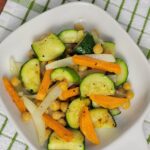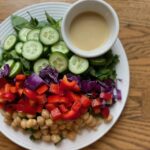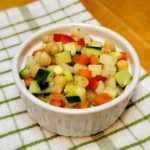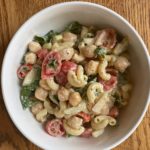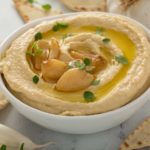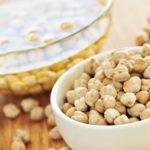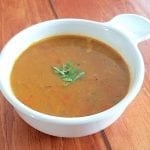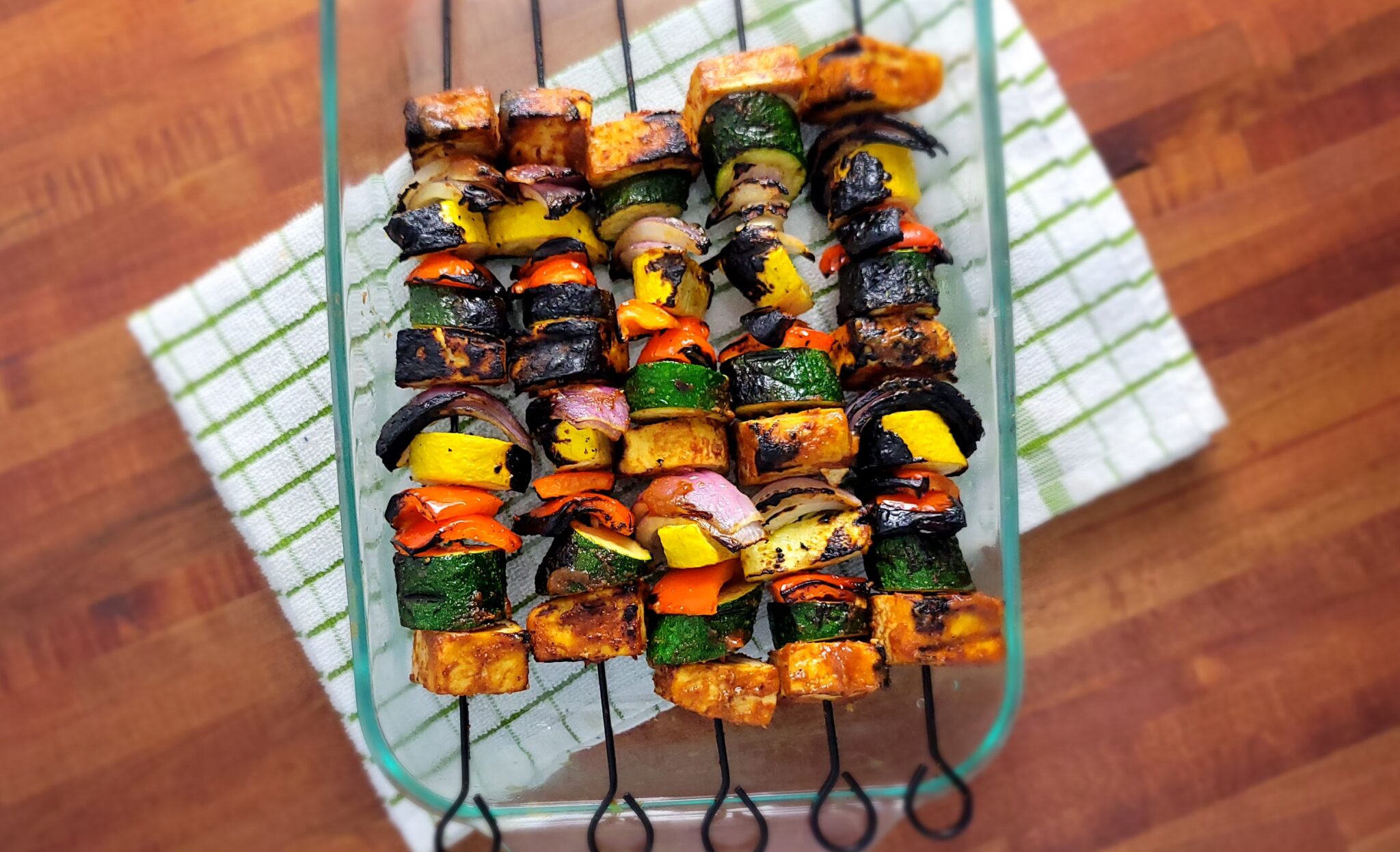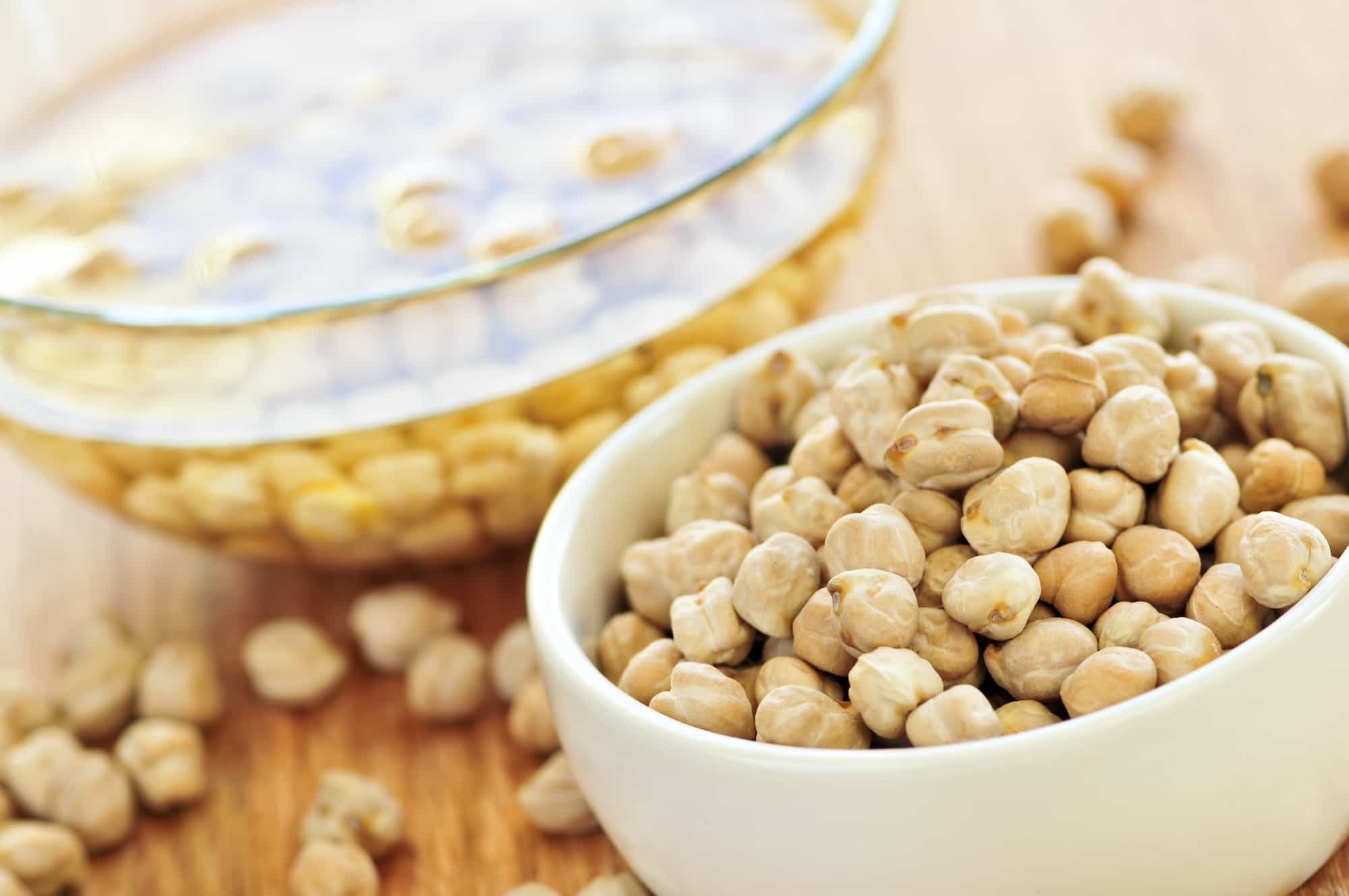
Introduction
Chickpeas are a highly versatile legume and a main staple in many cultures. This legume is a plant-protein powerhouse used in soups, dips, and curries, but is it kidney-friendly? In this article, we review the benefits of chickpeas for kidney health.
Kidney Nutrition: Chickpeas
Chickpeas are also known as garbanzo beans or chana. They are a good source of fiber, protein, iron, and calcium, which are very important in a kidney-friendly diet. The high fiber content is also helpful in reducing blood sugar spikes, preventing constipation, lowering cholesterol, and keeping you full after a meal [1].
Potassium: Potassium in Chickpeas
Chickpeas are a low-potassium legume per half-cup serving, making it easy to include in many dishes.
Fun Fact: Chickpeas have less potassium and phosphorus than chicken.
Phosphorus: Are chickpeas high in phosphorus?
No chickpeas are not naturally high in phosphorus. Less than 50% of the phosphorus in chickpeas is absorbed into your blood system (this is significantly less than meat or additive forms of phosphorus) [2]. Chickpeas are also the lowest phosphorus bean, making them an easy choice in any kidney diet.
Sodium: Navigating Canned Chickpeas
Chickpeas are naturally low in sodium when dry. When choosing canned chickpeas, use a canned product with no salt added to avoid extra sodium in your diet. Also, remember to rinse your chickpeas before using them to reduce salt. Adding whole spices or spice blends without salt to chickpeas can enhance the legume’s taste and versatility.
Protein: Lower Protein Alternative to Animal Meat
Chickpeas are high in protein for a plant-based food. Chickpeas can be a lower-protein alternative to animal meat for those seeking a low-protein diet. For people with higher protein needs, chickpeas are a great way to add protein to your meals that are low in phosphorus and potassium. All people need protein, and this legume is a great option.
How to store Chickpeas
Chickpeas come in dried and canned forms. Both of these sources of chickpeas can be kept in a pantry at room temperature for long periods of time. Once cooked, they can last 3-5 days in the refrigerator [3]. This food freezes well as part of a dish, for example, as a part of chili. Generally, frozen foods are good for 3 months.
Ways to add Chickpeas to your meals
Chickpeas can be roasted, sautéid, boiled, and mashed.
This legume is a staple in Mediterranean, Indian, Middle Eastern, European, and African dishes. It can also be used as a protein substitute in many Americanized foods, such as tuna/chicken salads, snacks, and soups. Chickpeas absorb spices well and have a pleasant texture in your mouth, making them a very good option for people just starting a plant-based diet.
Our favorite spices to use with chickpeas:
- Olive oil, garlic, and lemon
- Curry powder
- Dill
- Buffalo/Hot Sauce
Kidney-Friendly Chickpea Recipes
Here is a list of kidney-friendly recipes that use Chickpeas:
Conclusion
Chickpeas are an excellent option for anyone looking to make a healthy choice. This legume is a foundational plant protein in many traditional cultural dishes and an easy animal protein substitute, making it a great kidney-friendly choice for anyone with kidney disease. This bean can be seasoned in many ways to make a delicious meal. Check out our other kidney-friendly recipes here.
References
- Dietary Fiber Essential for a Healthy Diet. https://www.mayoclinic.org/healthy-lifestyle/nutrition-and-healthy-eating/in-depth/fiber/art-20043983
- https://www.cukebook.org/guides/diet/low-phosphorus-diet/
- Keep Food Safe! Food Safety Basics. USDA website. https://www.fsis.usda.gov/food-safety/safe-food-handling-and-preparation/food-safety-basics/steps-keep-food-safe/.

